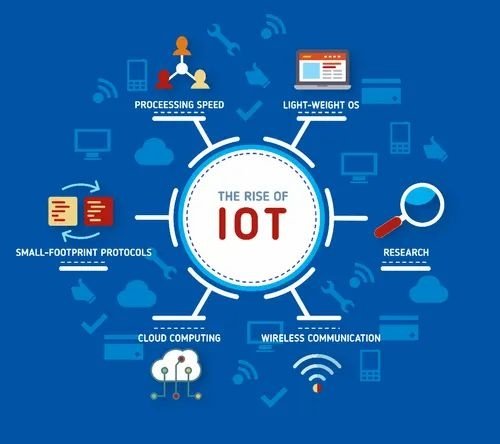The Internet of Things (IoT) has revolutionized the way we interact with technology, enabling seamless communication between devices and systems. At the heart of this interconnected ecosystem lies the IoT platform, a crucial component that facilitates the integration, management, and analysis of IoT data. In this article, we delve into the world of IoT platforms, exploring their features, benefits, challenges, and future trends.
Introduction to IoT Platform
In simple terms, IoT refers to a network of interconnected devices embedded with sensors, software, and other technologies that enable them to collect and exchange data. An IoT platform serves as the foundation for managing these devices and their data, providing the necessary infrastructure and tools to develop, deploy, and monitor IoT applications.
Key Features of IoT Platforms
Scalability
One of the primary requirements of an IoT platform is scalability, allowing businesses to seamlessly scale their IoT deployments as their needs evolve.
Security
Security is paramount in the IoT landscape, with platforms offering robust security features to protect sensitive data and prevent unauthorized access.
Interoperability
Interoperability ensures that devices from different manufacturers can communicate with each other and share data seamlessly, fostering a cohesive IoT ecosystem.
Data Management
Effective data management capabilities are essential for storing, processing, and analyzing the vast amounts of data generated by IoT devices.
Types of IoT Platforms
Cloud-based IoT Platforms
Cloud-based platforms offer flexibility and scalability, leveraging cloud infrastructure to host IoT applications and manage device data.
Edge IoT Platforms
Edge platforms process data locally on the device itself, reducing latency and bandwidth requirements while enhancing data privacy and security.
Hybrid IoT Platforms
Hybrid platforms combine cloud and edge computing capabilities, offering the best of both worlds in terms of scalability and real-time processing.
Benefits of Using an IoT Platform
Enhanced Efficiency
IoT platforms streamline operations and automate processes, leading to improved efficiency and productivity.
Cost Reduction
By optimizing resource utilization and minimizing downtime, IoT platforms help businesses reduce operational costs and improve their bottom line.
Improved Decision Making
Access to real-time data insights enables informed decision making, empowering businesses to respond quickly to changing market conditions.
Enhanced Customer Experience
IoT-enabled products and services can deliver personalized experiences, driving customer satisfaction and loyalty.
Considerations for Choosing an IoT Platform
Compatibility with Existing Infrastructure
Ensure that the platform is compatible with your existing IT infrastructure and can seamlessly integrate with your other systems.
Scalability
Choose a platform that can scale to accommodate the growing number of connected devices and the increasing volume of data.
Security Measures
Prioritize platforms with robust security features to safeguard your data and protect against cyber threats.
Integration Capabilities
Look for platforms that offer easy integration with third-party applications and services to extend functionality.
Customization Options
Opt for platforms that allow for customization to meet your specific business requirements and use cases.
Popular IoT Platforms in the Market
AWS IoT
Amazon Web Services (AWS) offers a comprehensive IoT platform with a wide range of services for device management, data processing, and analytics.
Microsoft Azure IoT
Microsoft Azure provides a scalable and secure IoT platform with built-in support for edge computing and artificial intelligence.
Google Cloud IoT
Google Cloud IoT offers a fully managed platform for connecting, managing, and ingesting data from IoT devices at scale.
IBM Watson IoT
IBM Watson IoT provides a suite of tools and services for building, deploying, and managing IoT solutions across various industries.
Bosch IoT Suite
Bosch IoT Suite offers a modular and flexible platform for developing and deploying IoT applications, with a focus on industrial use cases.
Case Studies of Successful IoT Implementations
Smart Home Automation
IoT platforms have revolutionized the way we interact with our homes, enabling smart devices to automate tasks such as lighting, heating, and security.
Industrial IoT (IIoT) Applications
In industries such as manufacturing, IoT platforms are being used to monitor equipment health, optimize production processes, and enhance worker safety.
Healthcare IoT Solutions
IoT platforms are transforming healthcare delivery by enabling remote patient monitoring, predictive maintenance of medical equipment, and personalized treatment plans.
Challenges and Limitations of IoT Platforms
Security Concerns
The proliferation of connected devices has raised concerns about data security and privacy, highlighting the need for robust security measures.
Data Privacy Issues
Managing and protecting sensitive data generated by IoT devices presents challenges related to data privacy and compliance with regulations.
Interoperability Challenges
Ensuring seamless communication and data exchange between disparate devices and systems remains a key challenge in IoT deployments.
Integration Complexity
Integrating IoT platforms with existing IT infrastructure and legacy systems can be complex and time-consuming, requiring careful planning and coordination.
Future Trends in IoT Platform Development
Edge Computing
Edge computing is gaining traction as organizations seek to process data closer to the source, reducing latency and bandwidth requirements.
AI and Machine Learning Integration
Integration of AI and machine learning capabilities enables IoT platforms to derive actionable insights from the vast amounts of data generated by connected devices.
Blockchain for IoT Security
Blockchain technology holds promise for enhancing the security and integrity of IoT data through decentralized and tamper-proof ledger systems.
5G Connectivity
The rollout of 5G networks is expected to accelerate the adoption of IoT devices and applications, enabling faster data transmission and lower latency.
Conclusion
IoT platforms play a crucial role in unlocking the full potential of connected devices, enabling businesses to harness the power of data for innovation and growth. As the IoT landscape continues to evolve, organizations must carefully evaluate their options and choose the right platform to support their digital transformation efforts.
FAQs
- What is the role of an IoT platform in IoT applications? An IoT platform provides the necessary infrastructure and tools to manage and analyze data from connected devices, enabling businesses to develop and deploy IoT applications.
- How do IoT platforms ensure data security? IoT platforms employ robust security measures such as encryption, authentication, and access control to protect sensitive data from unauthorized access and cyber threats.
- Can IoT platforms integrate with legacy systems? Yes, many IoT platforms offer integration capabilities to connect with existing IT infrastructure and legacy systems, enabling seamless communication and data exchange.
- What industries can benefit from IoT platform adoption? Various industries, including manufacturing, healthcare, agriculture, and smart cities, can benefit from IoT platform adoption by improving operational efficiency, reducing costs, and enhancing customer experiences.
- How do IoT platforms contribute to digital transformation efforts? IoT platforms enable organizations to leverage data from connected devices to drive innovation, optimize processes, and create new business models, thus supporting their digital transformation journey.



